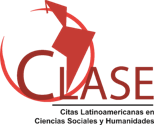THE PROMOTION OF FLEXIBILITY IN HIGH SCHOOL’S COUNTER-REFORM IN THE NEOLIBERAL CONTEXT
DOI:
https://doi.org/10.18764/2178-2229v29n1.2022.13Keywords:
High School, Counter-reform, Flexibilization, Educational Policy, Neoliberalism, Productive RestructuringAbstract
The study aims to analyze the interfaces between the principle of flexibilization, arising from economic neoliberalism, and the counter-reform of secondary education in Brazil regulated by Law No. 13.415 of 2017. We assume that the neoliberal adjustments implemented in Brazil, especially since the 1990s, redefine the State’s actions to meet educational demands, while conceiving education as a factor of capitalist production. In this sense, as far as secondary education is concerned, a counter-reform movement is underway, materialized in educational policy, which incorporates the principle of flexibilization as a strategic element for the maintenance of the relations of domination in capitalist society, with emphasis on training for future entrepreneurship and on stimulating the commodification of education. This study is based on the following authors: Gentili (1998), Behring (2008), Harvey (1996), Dardot and Laval (2018), Laval (2019) and Chauí (2021). This is a qualitative research of the explanatory type, with the analysis of documents (national and international) present in the context of influence of this Law, with flexibilization as an analytical category. From the study, it can be said that the counter-reform of high school in Brazil, materialized in Law No. 13.415/2017, expresses the interests of social relations and capitalist productions, and is aligned to the process of commodification of high school, as well as the training ideology for entrepreneurship underway in Brazilian public education, with neoliberal inspiration.
Keywords: High School. Counter-reform. Flexibilization. Educational Policy. Neoliberalism. Productive Restructuring.
Downloads
Downloads
Published
How to Cite
Issue
Section
License
Copyright (c) 2022 Cadernos de Pesquisa

This work is licensed under a Creative Commons Attribution 4.0 International License.
A Cadernos de Pesquisa está licenciada com uma Licença Creative Commons Atribuição 4.0 Internacional.




















